Key takeaways and highlights from APC’s India Learning Journey in April 2023.
BY CAROL TAN
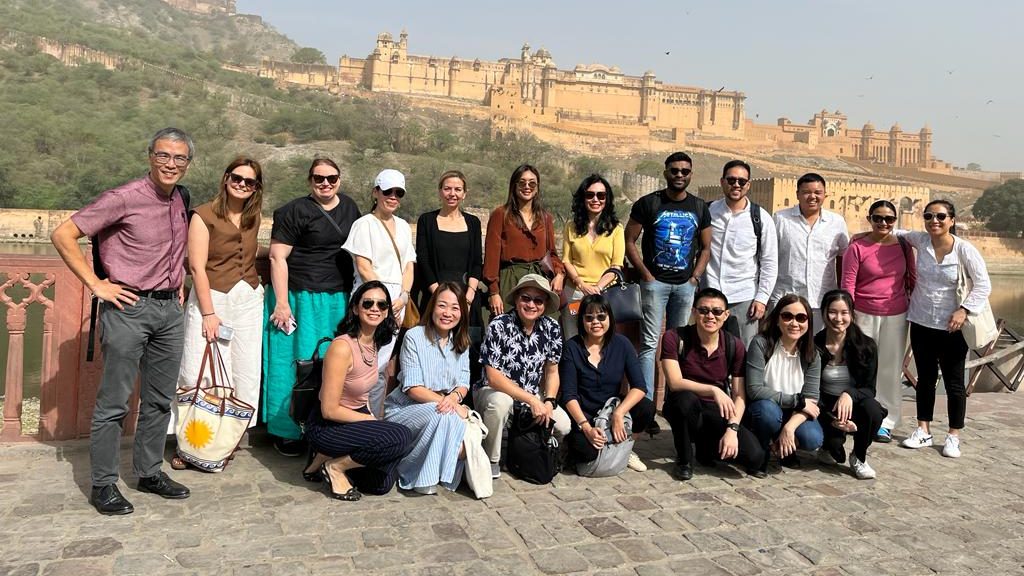
About APC Learning Journeys APC Learning Journeys are study trips that facilitate knowledge, exchanges, and deep dives into specific issue areas, geographies and philanthropy-related themes for members.
One big highlight at APC last quarter was our Learning Journey to India, led by the indefatigable Stacey Choe! India has a long and storied history in social impact, with a vibrant non-profit sector (over three million non-profit organisations!) and social innovations with impact even beyond India’s shores. Yet it remains a hidden gem, despite some pretty audacious bets that have been placed by prominent Indian philanthropists.
APC members have long expressed a desire to witness and learn more about this hidden gem—hence our India Learning Journey was built around three learning themes: collective impact, social innovation at scale, and systems change.
So, over an action-packed six days, some 23 members and guests journeyed through the physical, cultural, and social impact landscapes of Delhi, Jaipur, and Bangalore—meeting over 70 changemakers and 30 organisations, on top of delicious food, amazing sights, and warm conversations.
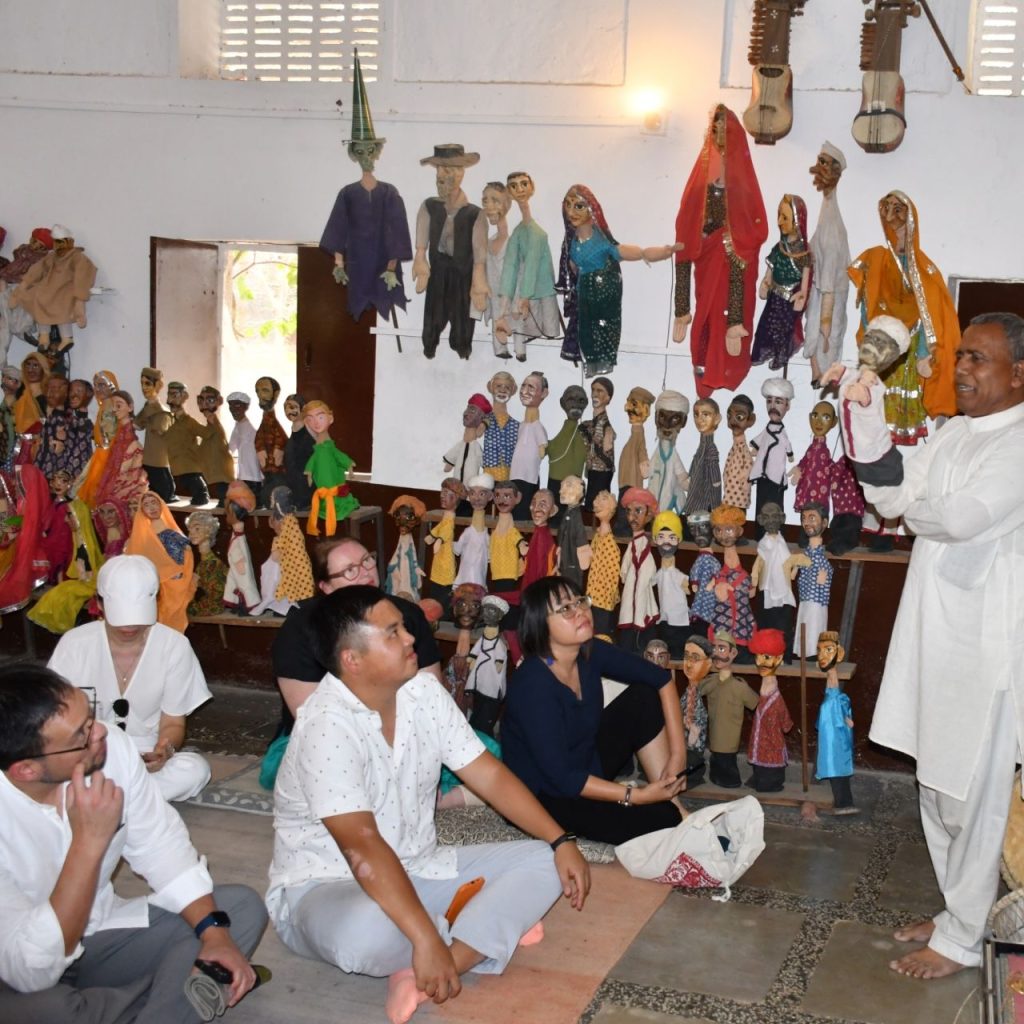
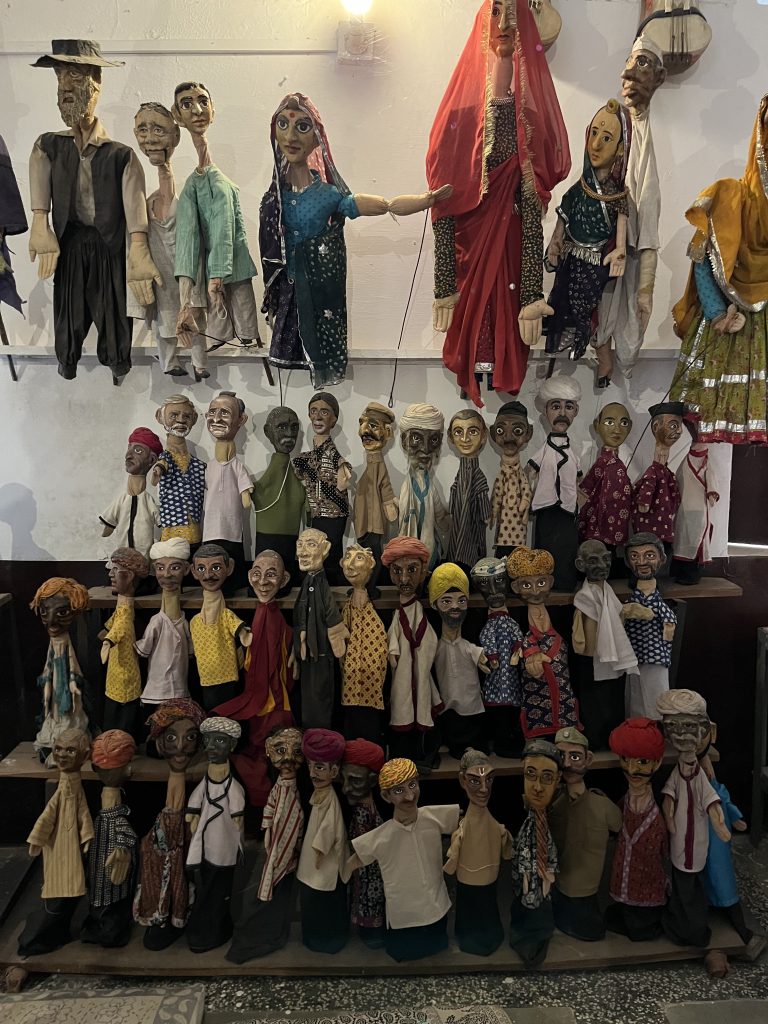
Along the way, we learned how puppets could be used to spark hard conversations in communities, discussed over dinner how feeling deeply connected to our fellow human beings and nature is key to creating a better tomorrow, and laughed and cried with women as they shared about their lives and how starting their own businesses transformed their standing in deeply patriarchal societies. Here are some photos, stories, and learnings from our trip—we hope you find them as insightful as we did!
Collaboration and Collective Impact: Work in a way that unleashes agency, creativity, and ownership.
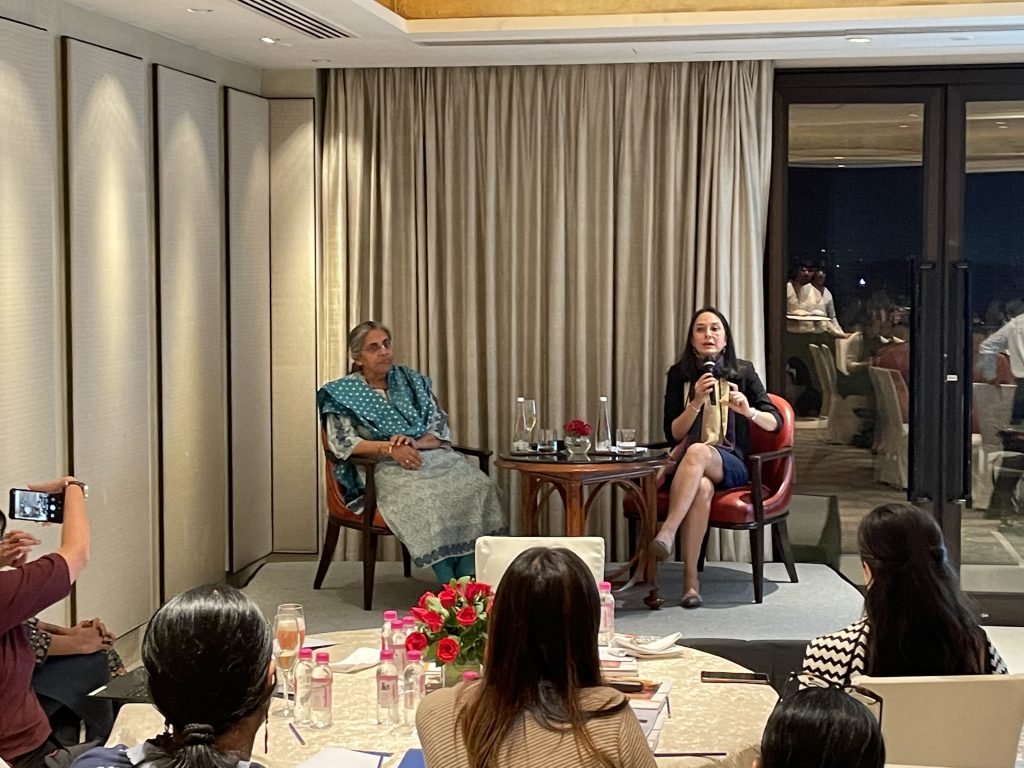
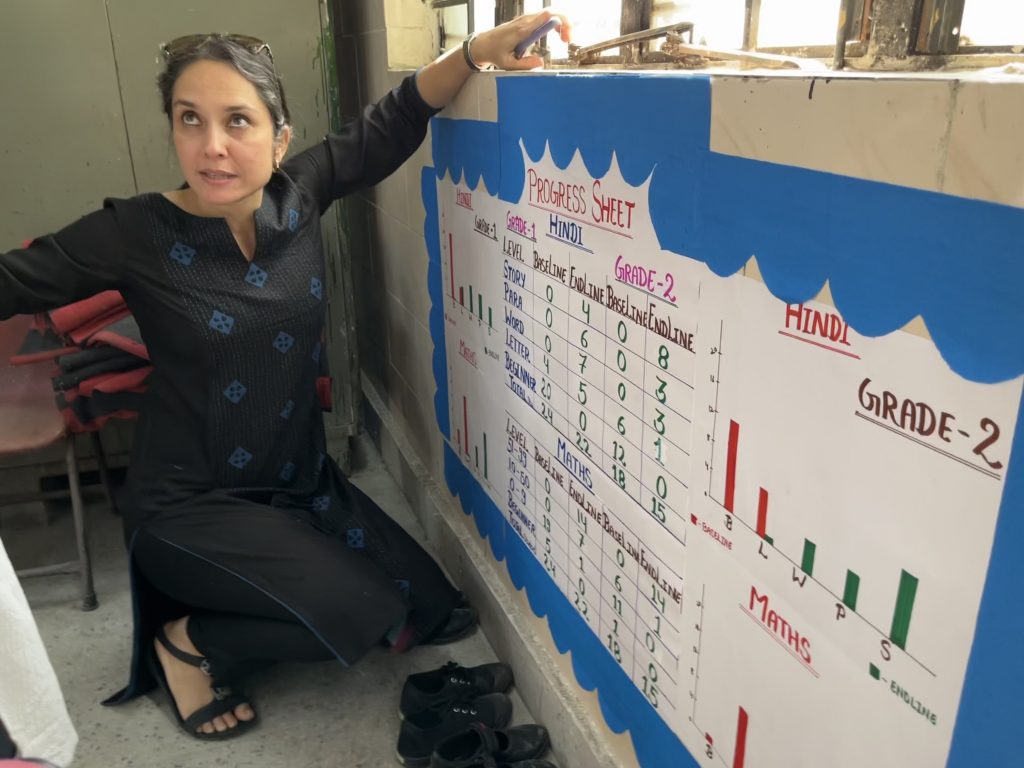
Develop long-term learning partnerships and scale what works.
Shobhini Mukherji of J-PAL South Asia and Rukmini Banerjee of Pratham shared the power of a decades-long relationship between their organisations. J-PAL popularised randomised controlled trials; their founders were awarded Nobel Prizes in Economics. Pratham not only proved that the Teaching at the Right Level (TARL) methodology can remediate foundational literacy and numeracy levels within 6-8 weeks in young children, but also successfully scaled it across India, Asia, and now Africa.
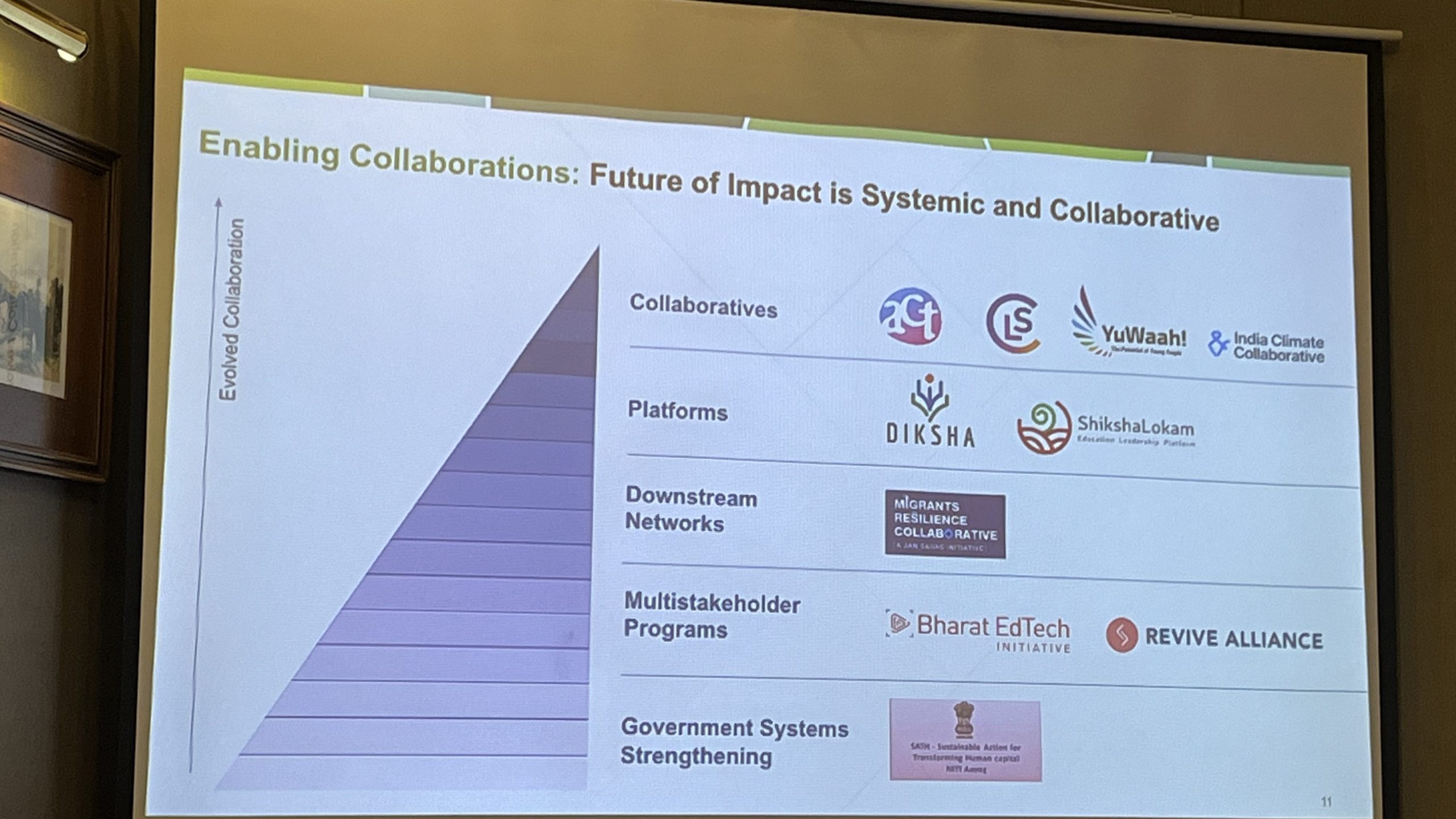
Collaboratives are living organisms.
They need time and patience, and must be able to adapt with new information. Life Skills Collaborative includes 18 organisations that aim to build a life skills-focused learning ecosystem for young people; it took about 8 months to build relationships and to create a joint approach. We learned how when agency is restored to the right level of stakeholders, people possess the means to solve issues at all levels of society!
Social innovation at scale: Plan for scale
Design an elephant, not many mice.
We were all struck by a quote from Rohini Nilekani, who said that building an elephant requires at least starting with a baby elephant; no number of mice could create a future elephant.
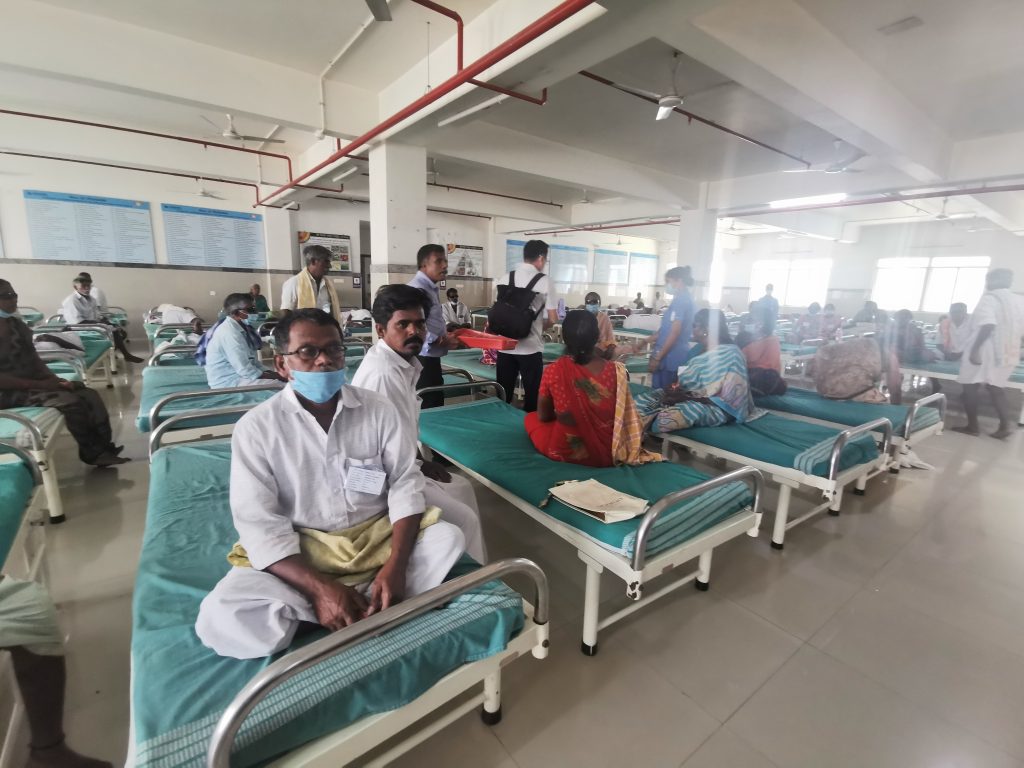
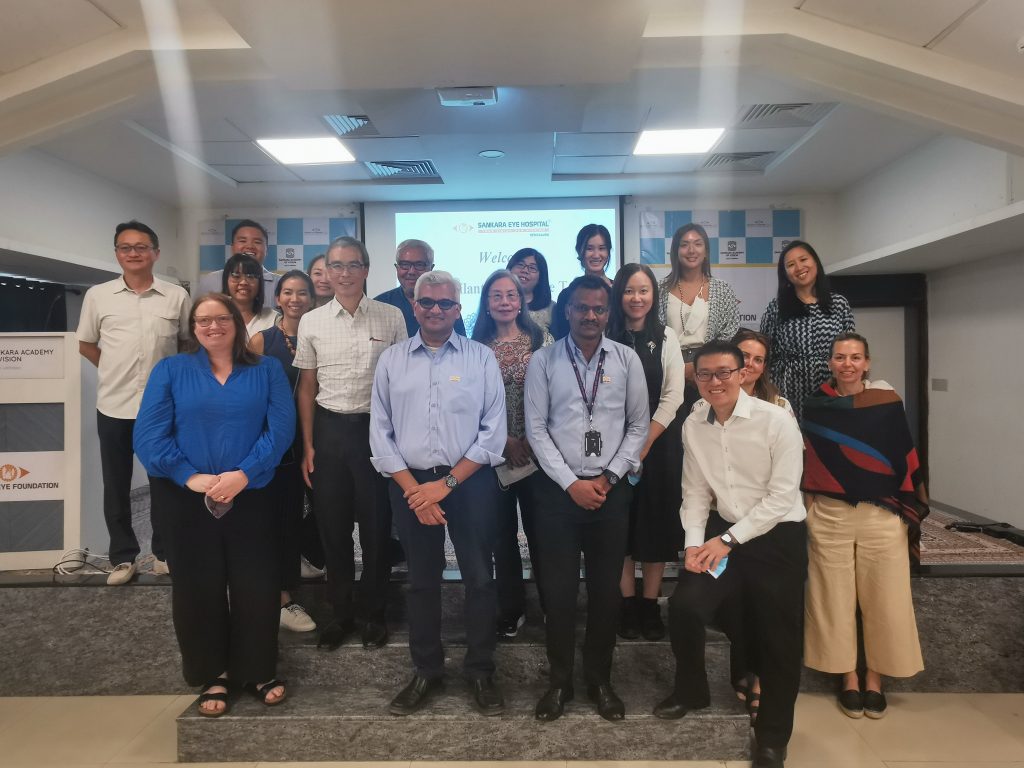
We were also impressed by Sankara Eye Hospital’s intentionality to build a sustainable business model from the very start—and today, it is the largest eye hospital network in India.
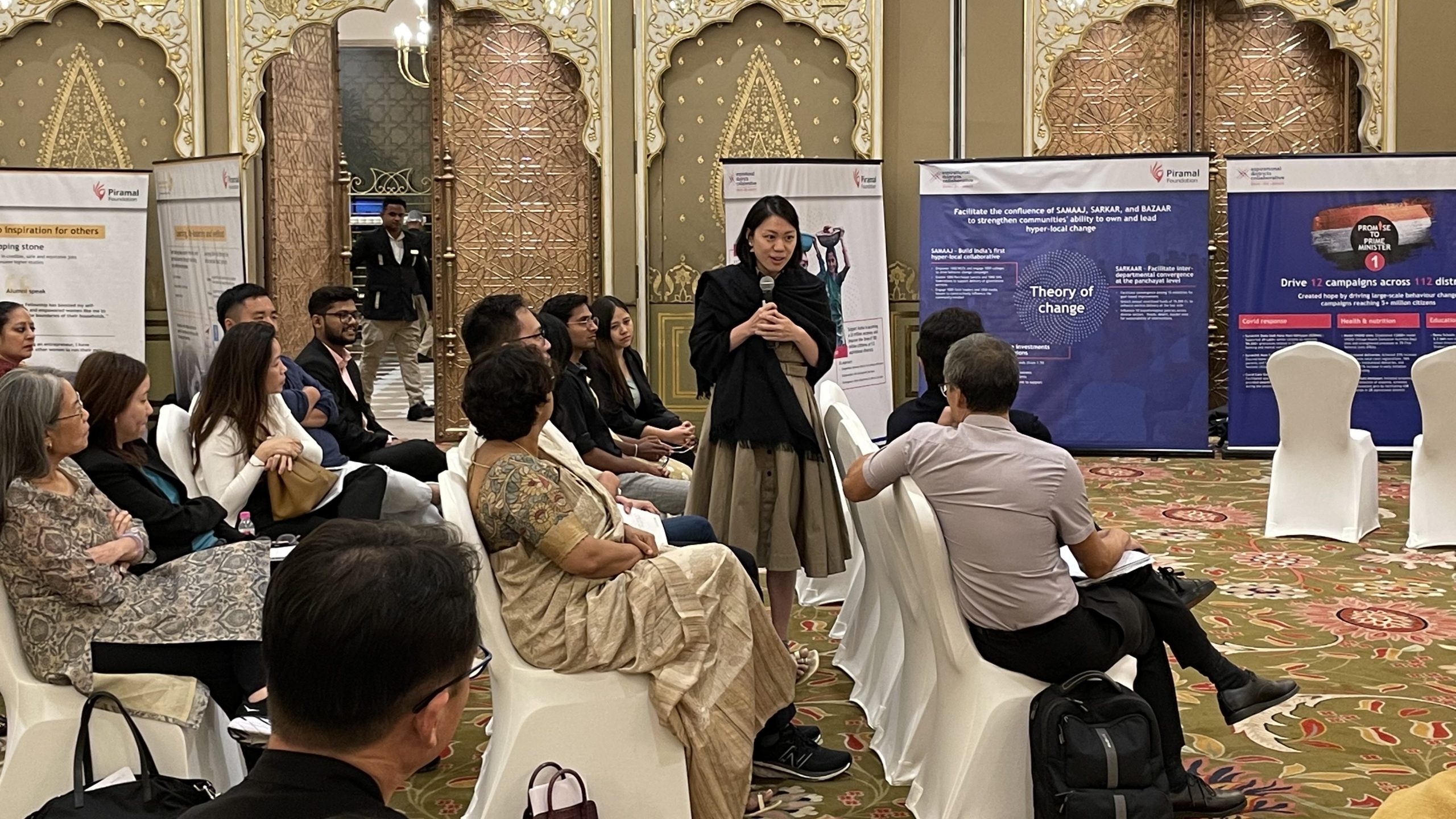
One way is to place big bets on eventual integration with government.
The Piramal Foundation leans hard into six big bets that they partner the Indian government on. This integrates any new innovative practices directly into public sector systems, which immediately take them to scale.
Another way is to create platforms that can tap into the ingenuity of the crowd.
For example, Rohini Nilekani Philanthropies and their partners created a digital backbone behind education app Diksha, which the government deploys; and Aadhaar, which the government uses for nationwide digital IDs. From these, others have now been able to build digital payment systems and digital health records systems—demonstrating the power of an “infrastructure” approach.
Social innovation at scale: Plan for scale
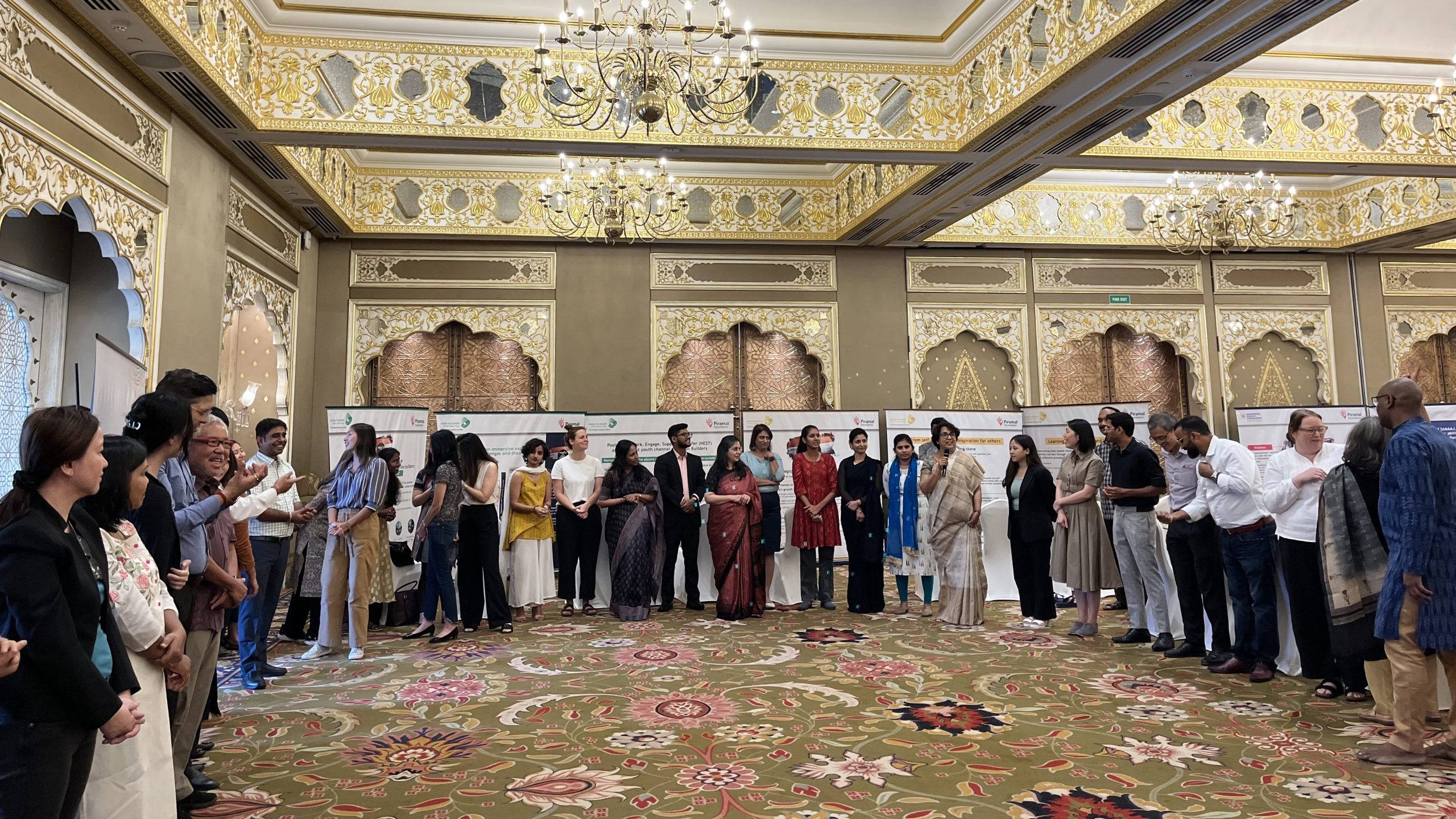
Develop leaders.
Individuals can change the system—whether they are young leaders, leaders inside systems, or local leaders. We couldn’t help but bask in the optimism of the young Piramal Foundation’s Gandhi Fellows, who are sent with hardly any resources but their own wits, guts, and hearts to offer their skills to poor communities all around India.
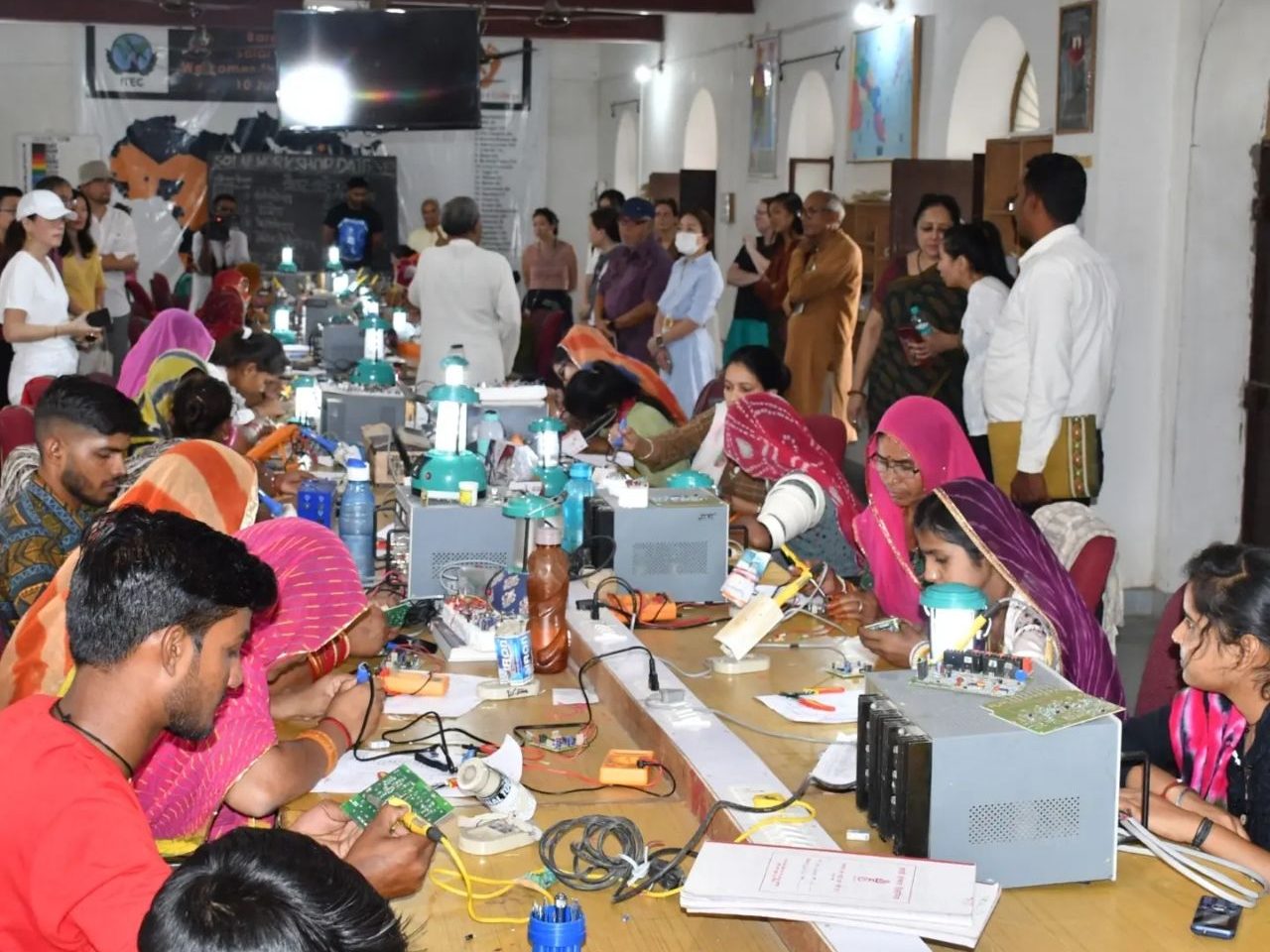
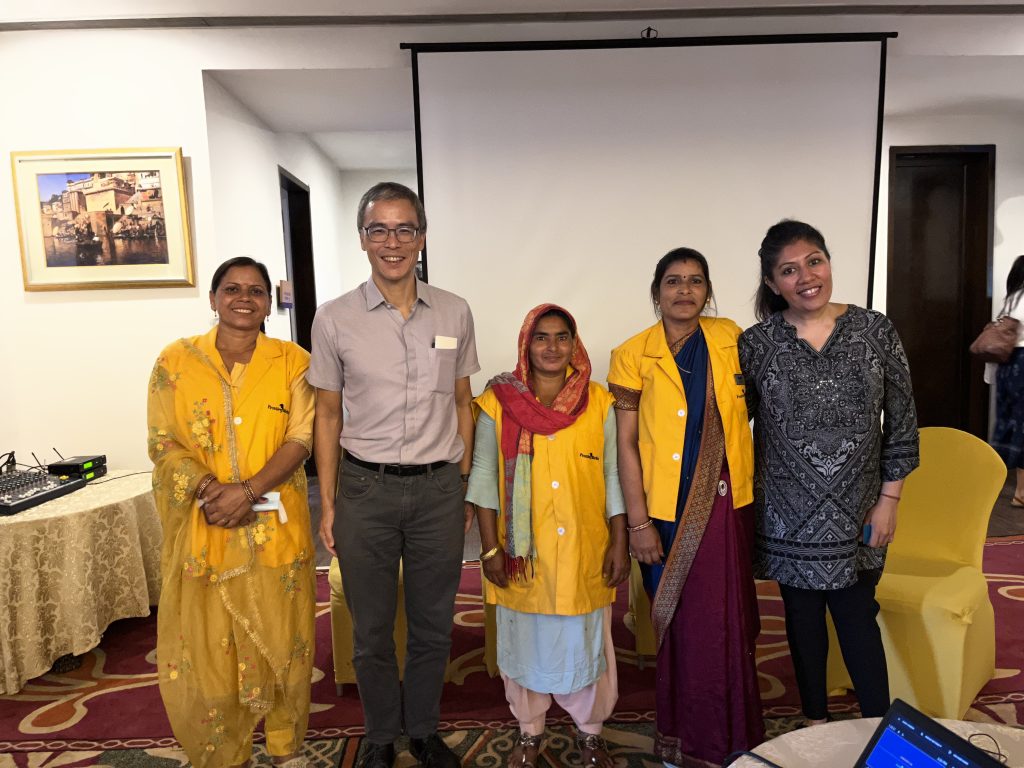
Likewise, we were also inspired by the Nudge Institute’s Indian Administrative Fellowship, which provides advisors and resources to help influential leaders in government, and by the local leadership shown by women in villages who drive livelihood opportunities for their communities and shape culture in the process.
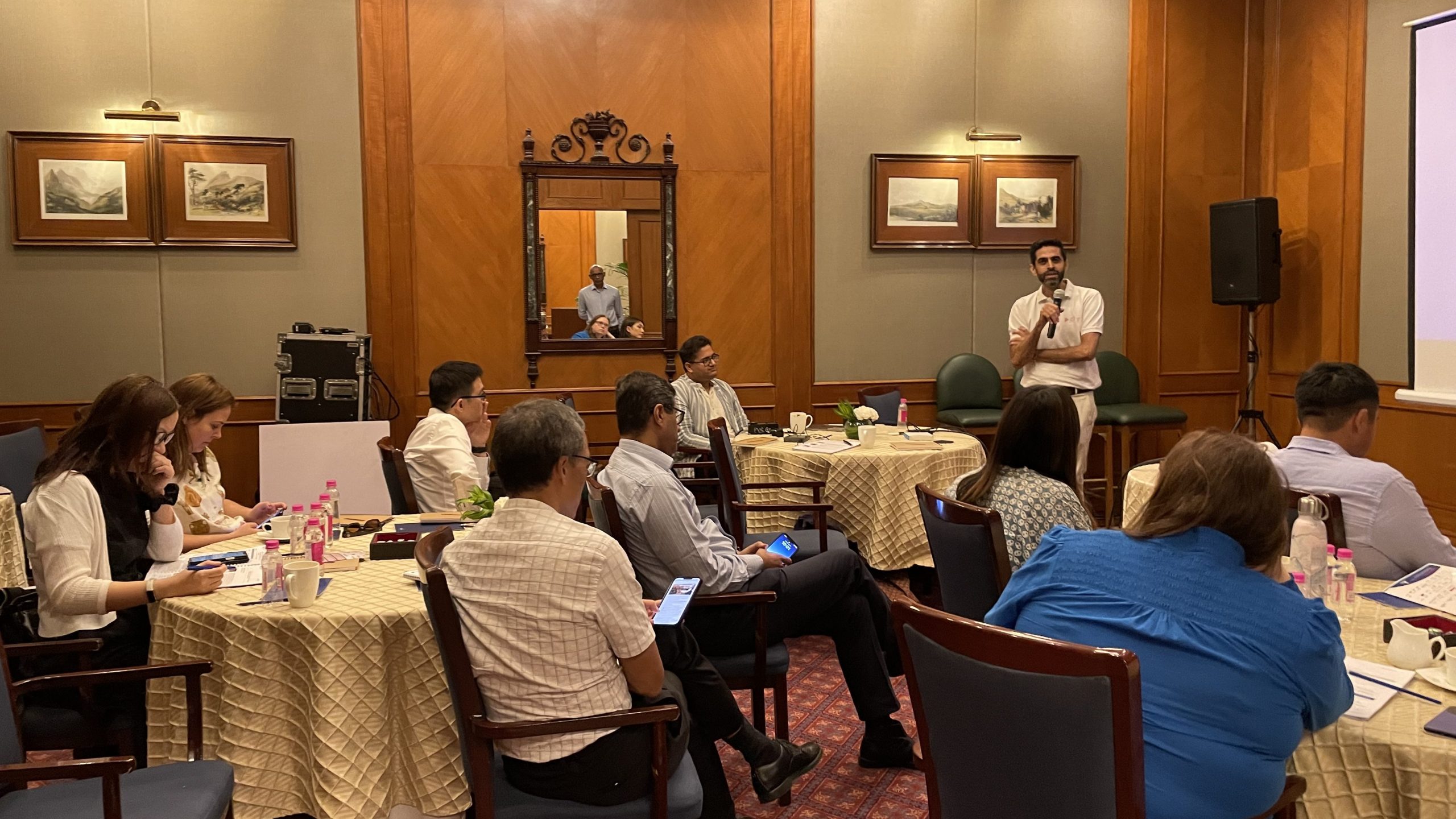
We must think about the relationship between the public and private sectors—and people.
Reimagine possibilities, possibly rebalance the relationship between society (“Samaaj”), government (“Sarkar”), and markets (“Bazaar”).
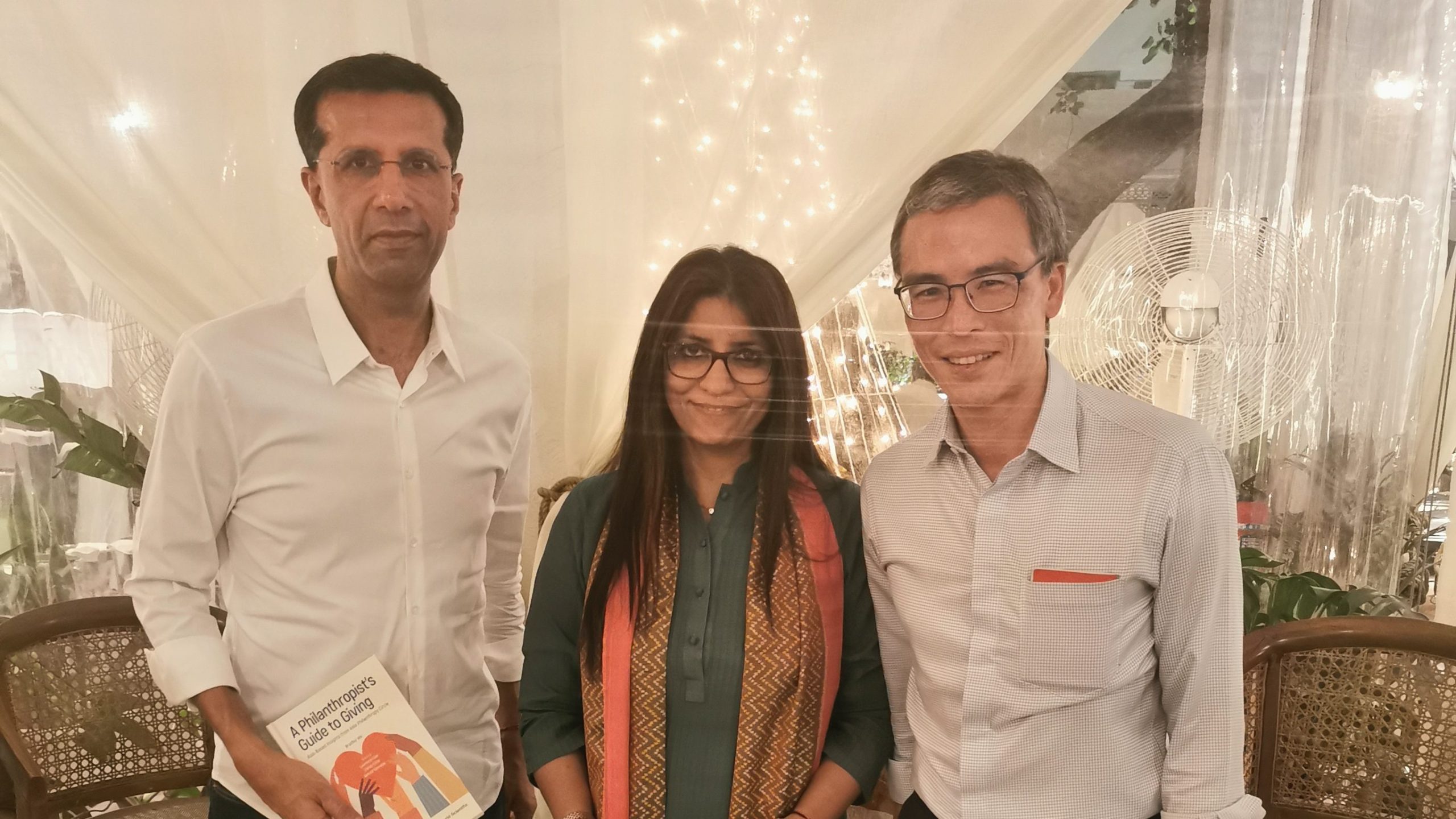
Build institutions and walk alongside changemakers.
The Convergence Foundation shared their model of incubating new initiatives based on a deep trust in the social entrepreneur. They also provide entrepreneurs and their initiatives with shared services to help them grow their impact, and to strengthen their organisations. Other philanthropies like the Ford Foundation also touched on trust-based philanthropy.
Seed new mindsets, behaviours, and societal interactions, and thereby creating paradigm shifts.
There are many ways to do this—such as using the power of mass media. UN Live broadcast to us straight from London and Copenhagen as we discussed using media for social change, sharing about an upcoming Bollywood movie about everyday superheroes fighting climate change!
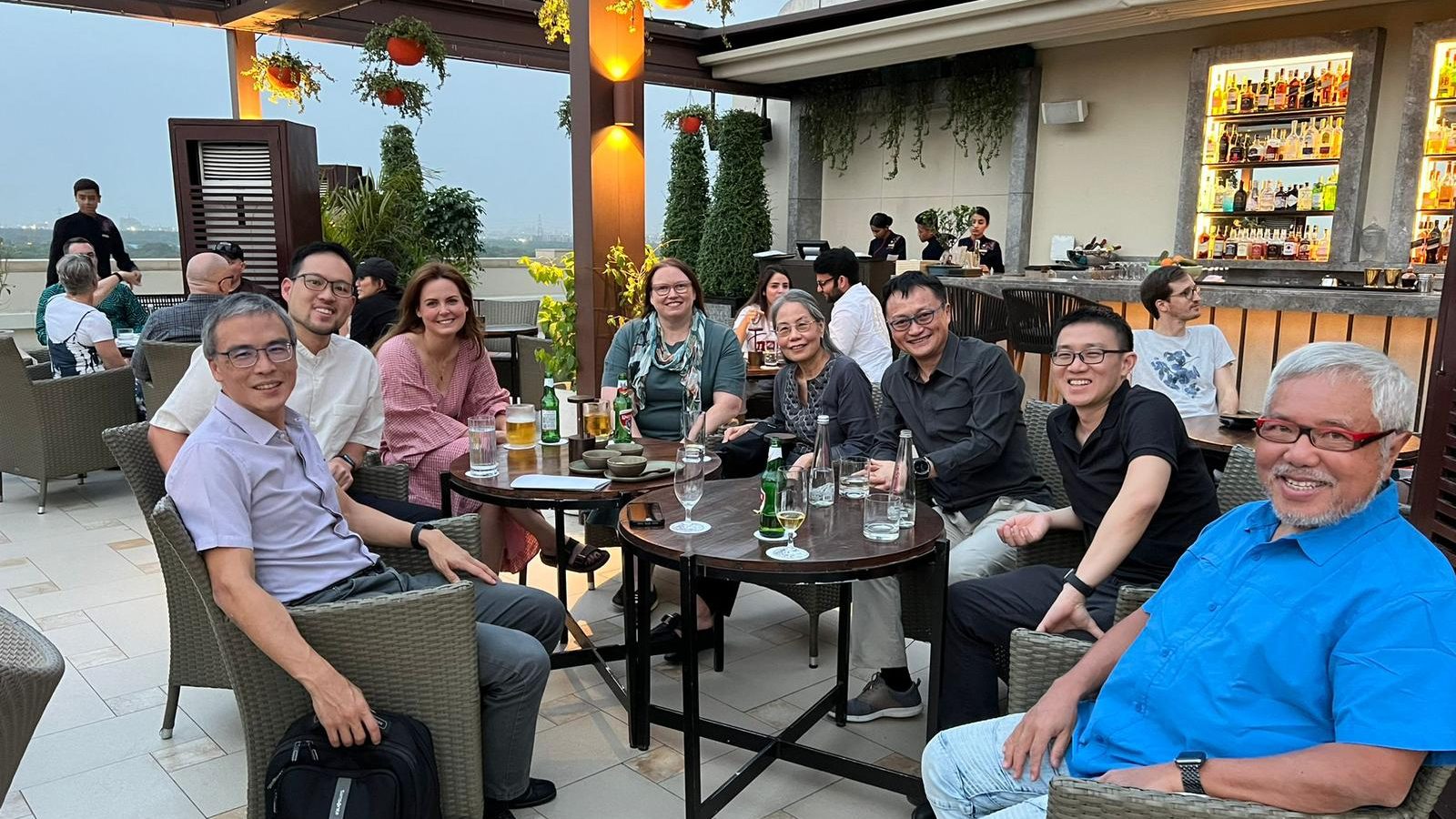
It was not all work–there was also some fun!
In between all the deep learning and discussions, we also managed to have some fun! Lionel’s Corner was officially open for business the first evening, following a tradition started during our 2022 Learning Journey to Europe.
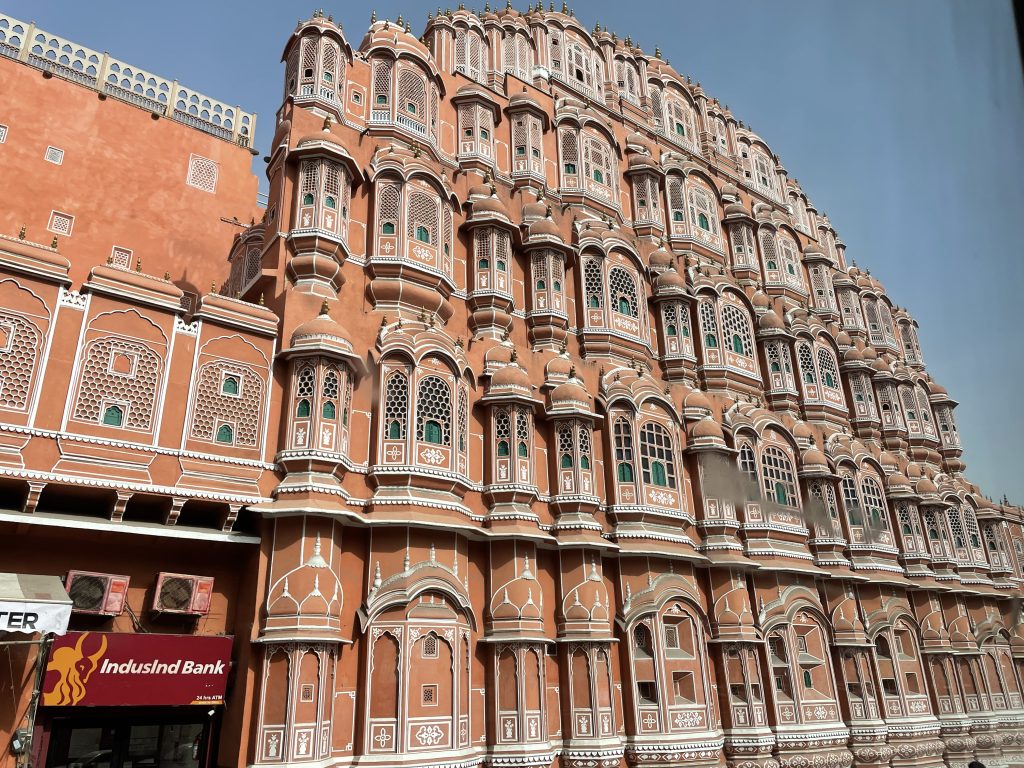
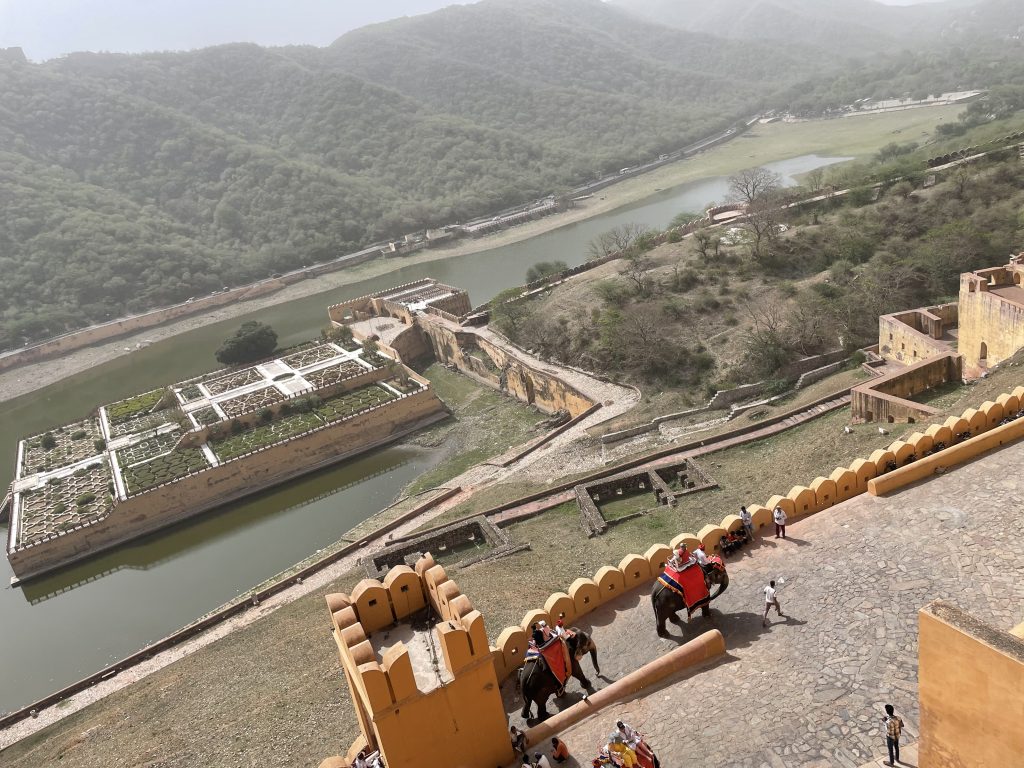
Later in the week, we capped off a long day of field visits with an adrenaline-pumping jeep ride up the glowing Amber Fort and ended the day with undulating drumbeats and music that lasted till midnight.
Of course, the fun and learning doesn’t end in India—and at APC, we strive hard to make every Learning Journey better than the last. If you missed out on this one, stay tuned for our next Learning Journey in 2024!
For more insights on the India Learning Journey and partners we met, our trip report can be found here (Password: APCLJ2023).
